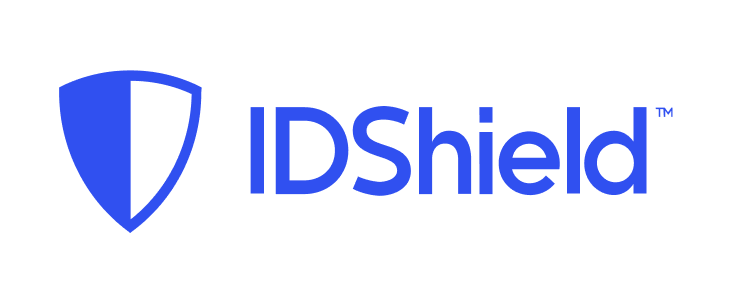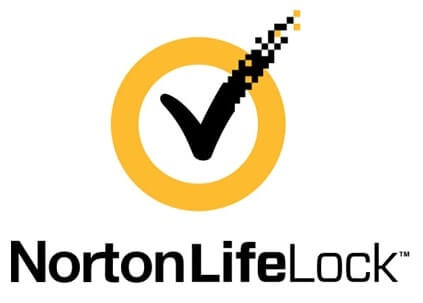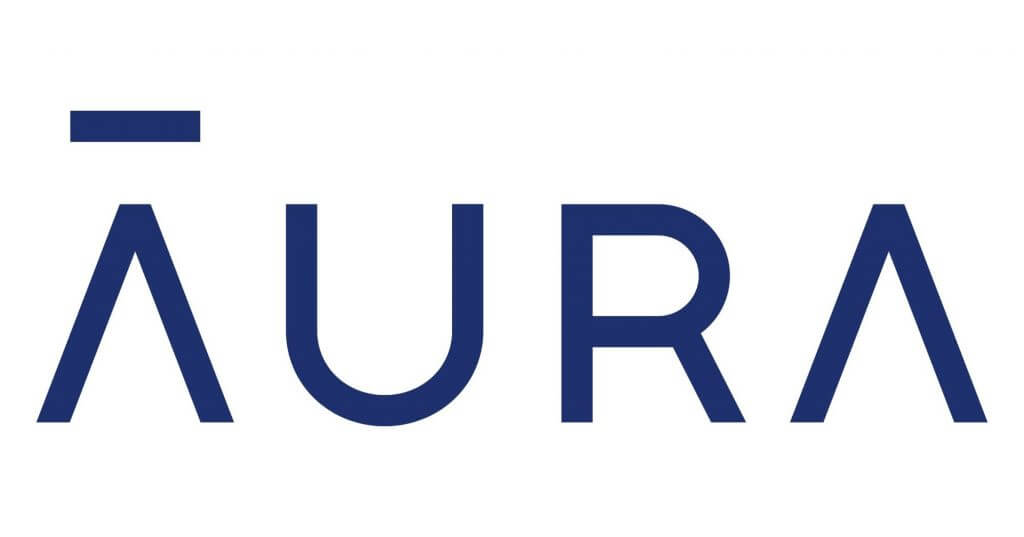5 Best Aura Alternatives and Competitors
If you’re looking for the best identity protection service to protect your assets, your credit, and your family online – it’s tough to beat Aura.
I’ve tested many identity protection tools, trying out everything from their dark web monitoring to their credit tracking add-ons. I’ve quizzed their customer service teams at all-night hours, scrutinized their password managers, and investigated their social media tools.
In the end, Aura was the best choice. Here’s why:

What Makes Aura Different:
- Aura identity theft and credit monitoring are accurate and comprehensive. It’s an award-winning service for a reason. Aura monitors the most niche areas like home and auto titles and does it well – finding more alerts in testing than just about any other service.
- Aura’s threat resolution capabilities are top-notch. With Aura, you have access to an expert team with an average of seven years of industry experience. And each plan comes with $1 million in theft insurance per adult. So, you know you’re protected if a criminal manages to steal your identity.
- Aura’s family plans are flexible. You can include up to five adults on an Aura family plan (plus unlimited children), allowing you to protect your adult children, parents, in-laws, or anyone else who depends on you.
- Aura offers more online privacy and safety features. With Aura, you get everything you need to keep yourself and your family safe online, including a VPN, antivirus software, and a full suite of parental control tools – including safe gaming and anti-bullying features.
- Aura provides the best value. Most services don’t come close to offering everything Aura does, yet most of them still charge more. Aura’s rates are already affordable, but you can lock in an even lower price using our exclusive discount code.
Home Security Heroes independently tests and reviews every product. We may earn a commission when you buy through our links. Read more here.
Top 5 Aura Competitors and Alternatives To Consider This 2024
Aura is the best service available for most people, but that doesn’t mean other reputable identity protection services are out there. Below, I’ll cover five of the most well-known. That way, you can find the right service for you – one that best protects your name, credit score, and all the other vital components of your identity (and maybe your family’s too).
1. LifeLock
LifeLock is the biggest name in identity protection, so let’s start here.
Pros
- Increasing insurance with each adult and child on your plan.
- Comes with a comprehensive suite of online privacy and parental control tools.
- Offers a wide breadth of monitoring services, including home title and investment account monitoring
Cons
- Price increases significantly upon renewal.
- Customer service is overseas.
- Monitoring is not as accurate as Aura.
- LifeLock has a sketchy history when it comes to protecting user data.
How It Compares To Aura
LifeLock is similar to Aura in many ways. For example, it the same offers in-depth monitoring, which includes:
Unfortunately, LifeLock isn’t as accurate when it comes to its monitoring services. When I tested it, I found that Aura caught two dark web alerts while LifeLock only caught one. And Aura found many compromised passwords, while LifeLock didn’t find any.
LifeLock was also slower to populate alerts, taking over a day rather than the few minutes it took Aura. Speed isn’t everything, but I want a service that’s as close to real-time as possible. That allows you to prevent minor issues from becoming big problems.
Like Aura, LifeLock also offers a full suite of online privacy and parental control features – including a VPN, Norton antivirus software, and remote learning tools that allow parents to block sites, set screen times, and more.

And, just like Aura, LifeLock increases its insurance coverage with each person you add to a family plan. At the top level, this allows you to have up to $3 million in coverage per adult and over $1 million per child – which is pretty phenomenal.
But there’s a catch.
Based on my LifeLock pricing review, their lower-level plans include minimal coverage. Though they call them $1 million protection plans, lower tiers only provide $1 million towards legal fees. They provide far less coverage for stolen funds and expenses (as low as $25,000 per adult).
LifeLock’s sketchy behaviors don’t end there.
While their threat resolution team is U.S.-based, their customer service team isn’t. You have to talk to customer service and prove you’re an identity theft victim before they connect you with their threat resolution team, and believe me, this is not a pleasant experience. Reaching LifeLock’s customer service is a challenging task.
LifeLock also has a history of failing to protect its customer data and using deceptive marketing tactics. They recently settled an FTC lawsuit because of this. So, while they’re the most well-known protection service, they’re not who I would pick.
Pricing and Plans
Promo Code | |
Individual Plan Cost | Annually
Monthly
|
Couple Plan Cost | Annually
Monthly
|
Family Plan Cost | Annually
Monthly
|
Renewal Price Increased After 1st Year? |
|
Promo Code |
Related:
2. IDShield
IDShield is another popular identity protection choice that might be worth considering.
Pros
- Licensed private investigators provide identity restoration.
- Unique reputation management tools
Cons
- Confusing sign-up process
- Inaccurate monitoring
How It Compares To Aura
IDShield has a couple of unique perks. It offers identity restoration from licensed private investigators. With that, they provide an identity restoration guarantee – if you become the victim of identity theft, they’ll get your identity back to pre-theft status or your money back.
IDShield also comes with a unique reputation management tool. It connects to your social media account and uses automated tools to scan for content that could be offensive. So, if you have photos from high school or posts from that year you almost joined a cult (no judgment), IDShield will help you delete them in one go.
When I tried to test this tool, I didn’t have good results. It took three tries to connect the tool to my accounts. Once I got it linked, it didn’t flag anything I felt I needed to remove.
In truth, my testing experience with IDShield could have been better. The sign-up process is confusing, forcing you to get a LegalShield account first – and then create an IDShield username and password.
And it had a hard time discovering threats. It didn’t populate a single alert on my information.
Pricing and Plans
 | |
Promo Code | |
Individual Plan Cost |
|
Couple Plan Cost |
|
Family Plan Cost |
|
Renewal Price Increased After 1st Year? |
|
Promo Code |
Related:
3. Identity Guard
Identity Guard is similar to Aura in many ways because the same company owns them.
Pros
- Accurate monitoring
- Competent customer service
- Very affordable plan available
Cons
- Restoration service only available with top-tier plan
- Customer service has limited hours
- Limited extra features
How It Compares To Aura
Identity Guard is Aura’s predecessor, and it has a few benefits. If you want a very affordable protection service, its lowest tier “Value” plan is a good choice. It only provides basic protections and doesn’t include identity restoration services.
You actually have to purchase Identity Guard’s top-tier plan to get help with restoration should you become a victim of identity theft.
Like Aura, Identity Guard is accurate. In testing, it found the same threats Aura did. And, their customer service team is excellent. I reached them in under two minutes and found them to be competent.
Unfortunately, though, Identity Guard has limited customer service hours. It also includes far few privacy features and no parental controls. There’s a password manager and safe browser, but no VPN or antivirus software.
At it’s top-tier, Identity Guard costs more than Aura but includes significantly less. So, unless you’re comfortable with the Value plan and its (lack of) inclusions, I would go with Aura instead.
Pricing and Plans
 | |
Promo Code | |
Individual Plan Cost |
|
Couple Plan Cost |
|
Family Plan Cost |
Covers 5 adults & unlimited kids |
Renewal Price Increased After 1st Year? |
|
Promo Code |
Related:
4. IdentityForce
IdentityForce provides a few features families might want to take advantage of, especially if you have pre-teens and teens who frequent social media.
Pros
- Accurate monitoring
- Good social media controls for kids
- Excellent family features
Cons
- Pricey credit monitoring tools
- Smaller breadth of monitoring tools
How It Compares To Aura
IdentityForce impresses me with monitoring that’s just as accurate as Aura. In testing, it found the same number of threats at lightning-fast speed. Unfortunately, it misses some monitoring areas that Aura includes – like home and auto title monitoring.
It also charges more for its suite of credit tools, which isn’t worth the price. Though a credit tracker and simulator are handy to have, tools like this are available for much less through other services (you can monitor your credit for free using something like CreditKarma, for example).

That said, IdentityForce offers a couple of unique features for families. Immediate families of members receive identity restoration services even without a family plan.
And, IdentityForce’s ChildWatch service has won recognition for its social media tools. It monitors kids’ interactions on major social media sites, watching for signs of bullying, racism, and violence.
Pricing and Plans
Promo Code | |
Individual Plan Cost |
|
Couple Plan Cost |
|
Family Plan Cost |
|
Renewal Price Increased After 1st Year? |
|
Promo Code |
Related:
5. Costco Complete ID
If you’re a Costco member, you might be tempted by Costco Complete ID. This is a service that makes sense in specific scenarios.

Pros
- Accurate monitoring services
- Attractive pricing for Costco Executive members
Cons
- Pricing doesn’t make sense for regular members or non-Costco members
- Frustrating user-interface
How It Compares To Aura
Costco Complete ID offers accurate monitoring, good customer service, and great pricing – if you’re already paying for an Executive Costco membership.
I was impressed by how well the service did in tests. For me, it found just as many alerts as Aura did, at least just as many useful ones.
What I mean by that is simple – Costco Complete ID’s user interface makes it tricky to tell what’s really a threat and what isn’t. Technically, it found way more alerts than Aura did, but they needed to be more credible.
Here’s what I mean:
Costco Complete ID alerted me several times to a new “alias” under my SSN. With only two exceptions, all of those alerts were for the name I signed up for the service with.

The two exceptions were for my maiden name, which is slightly more forgivable. But surely the service could avoid alerting me to my own name being legitimately used with my SSN.
That’s not my only complaint with Costco Complete ID’s user interface. Everything on their dashboard is very spaced out. It looks more like the way you format a blog post than it does a usable dashboard. A lot of scrolling is required to find anything, and it’s a frustrating experience overall.
If you’re already an Executive Costco member, I will say the pricing for this service is very attractive. But if you have a regular membership (or aren’t a Costco member at all), you can do better than Costco Complete ID.
Pricing and Plans
 | |
Individual Plan Cost |
|
Couple Plan Cost |
|
Family Plan Cost |
---
|
Renewal Price Increased After 1st Year? |
|
Related:
Finding the Right Identity Protection Service For You
Choosing an identity protection service is a personal decision and there are some individual factors you’ll need to consider. Here are a few things I think about when recommending services:
- How much do you have to protect? This determines the amount of identity theft insurance you’ll want to have.
- Will LifeLock’s lowest-tier plan work for you? If you have less than $25,000 in the bank to steal, it might. But if you have more, you’ll want more substantial coverage.
On this note, it’s also important to understand that the cost of repairing your identity could be high. In some cases, identity restoration can take a long time and involve travel, which means expenses and lost wages you’ll have to factor in. - Do you have a family you need to protect? If so, do you need parental control features for young children? Or are your kids about to head off for college? If so, you may want a plan like Aura’s or Identity Guard’s that allows you to include adult children.
- Do you want all-in-one digital protection or just identity protection? Services like Aura include lots of extras, like a VPN, password manager, antivirus software, and more, so you can protect everything using one service. But there are also no-frills products available that focus solely on identity protection.
Final Thoughts
My family and I use Aura for identity protection because it offers everything we need in one service, including parental controls, safe gaming, and more niche features like home and auto title monitoring. Better yet, I know its monitoring is accurate. And I know it’s the best value given the price.
If you’re like me and decide to opt for Aura, you can use our discount code and save even more.
The important thing is that you protect your identity and the identities of those you love. For most, that means picking Aura, but the choice is yours alone.
Aura Related Articles:






